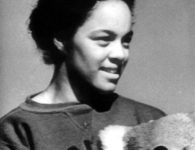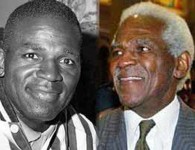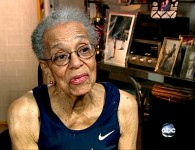By Victor Trammell and Nomalanga Mhlauli-Moses
Photo credits: Fsu.edu
Being the best at something is one thing. But becoming the first person to be the best at something classifies an individual as being in a league of their very own.
A great example of such a person is Kalisa Villafana (pictured). Villafana is a native of Trinidad and Tobago. At Florida State University in 2019, the Caribbean-born science and math genius became the first-ever black woman in the college’s history to earn a doctoral degree in physics!
According to an August 2019 report from a local ABC-affiliated media outlet based in Tallahassee, Florida, Villafana said the backing she got from her family and close friends is what propelled her to prominence.
“The support system is the reason why I was able to finish,” Villafana told ABC’s Channel 27 News.
“I’ve wanted to quit before like you would do in a lot of challenge and experiences but I feel like he made sure that I did not and the Florida State University physicist department really made sure that I did not and I feel like that’s the reason why I’m here at this point,” she also said.
Villafana completed her undergraduate degree in physics at Florida A&M University. She selected Florida State University for her graduate school program because of its high-ranking physics curriculum, its strong nuclear physics collective, and its state-of-the-art in-house laboratory.
The commencement ceremony Villafana recently attended recently was the first of two summer 2019 ceremonies held by Florida State University. This brilliant young lady is one of only 96 black women in the United States who have earned a Ph.D. in physics.
In her interview with ABC 27 News, Villafana offered a message of confidence to other young black girls who aspire to work in the field of science.
“Hopefully, other young girls are motivated when they see us, even though the field is predominantly white and male. Hopefully, they see that they too can be a physicist. You may not see a lot of us, but we’re there. We’re out there,” she added.
Source: HealthyBlackWoman.com





















No comments